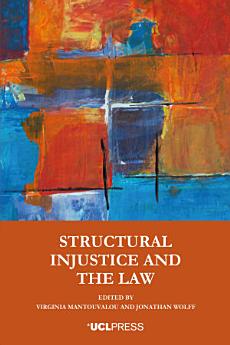Structural Injustice and the Law
Información sobre este eBook
Structural Injustice and the Law presents theoretical approaches and concrete examples to show how the concept of structural injustice can aid legal analysis, and how legal reform can, in practice, reduce or even eliminate some forms of structural injustice. A group of outstanding law and political philosophy scholars discuss a comprehensive range of interdisciplinary topics, including the notion of domination, equality and human rights law, legal status, sweatshop labour, labour law, criminal justice, domestic homicide reviews, begging, homelessness, regulatory public bodies and the films of Ken Loach. Drawn together, they build an invaluable resource for legal theorists exploring how to make use of the concept of structural injustice, and for political philosophers looking for a nuanced account of the law’s role both in creating and mitigating structural injustice.
Acerca del autor
Virginia Mantouvalou is Professor of Human Rights and Labour Law at UCL Faculty of Laws.
Jonathan Wolff is Alfred Landecker Professor of Values and Public Policy, Blavatnik School of Government, University of Oxford and Governing Body Fellow, Wolfson College Oxford.






